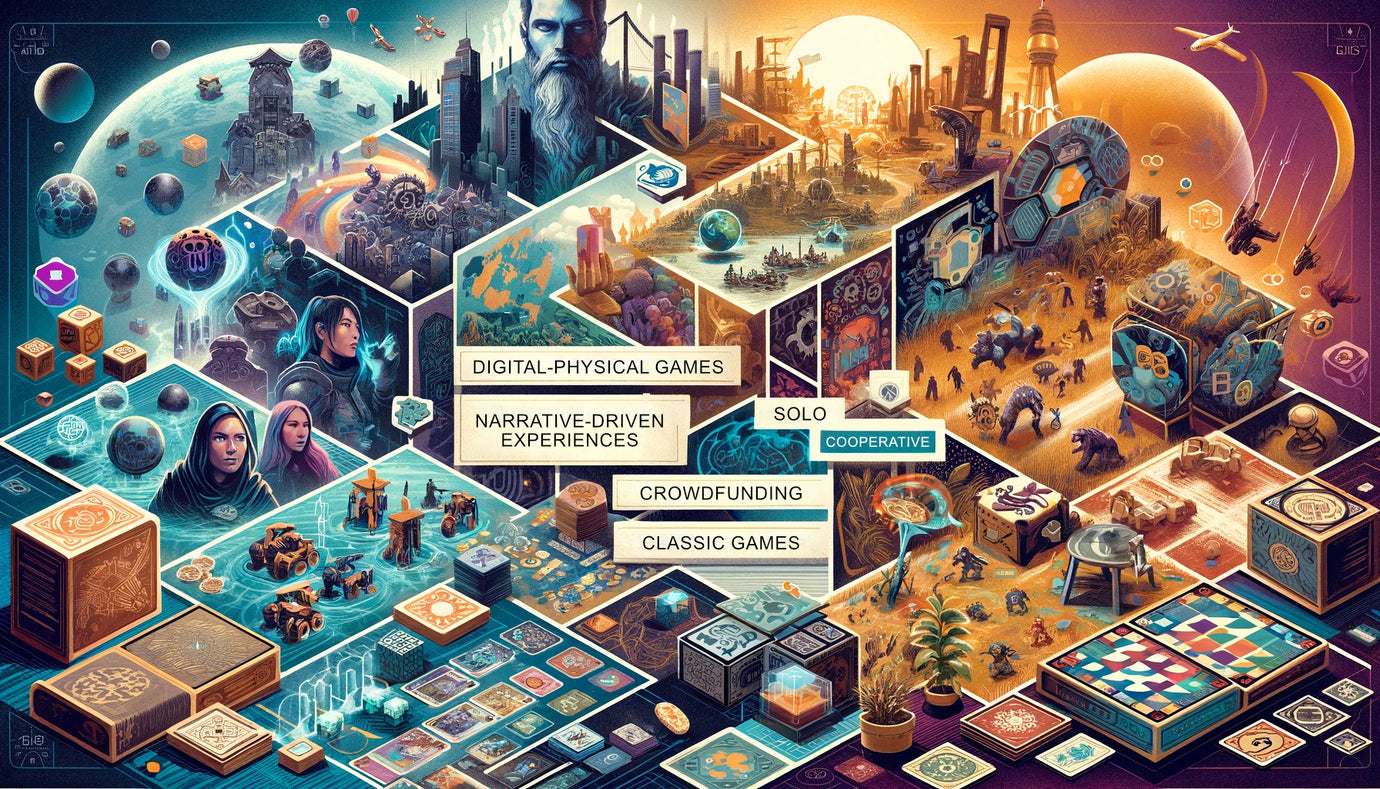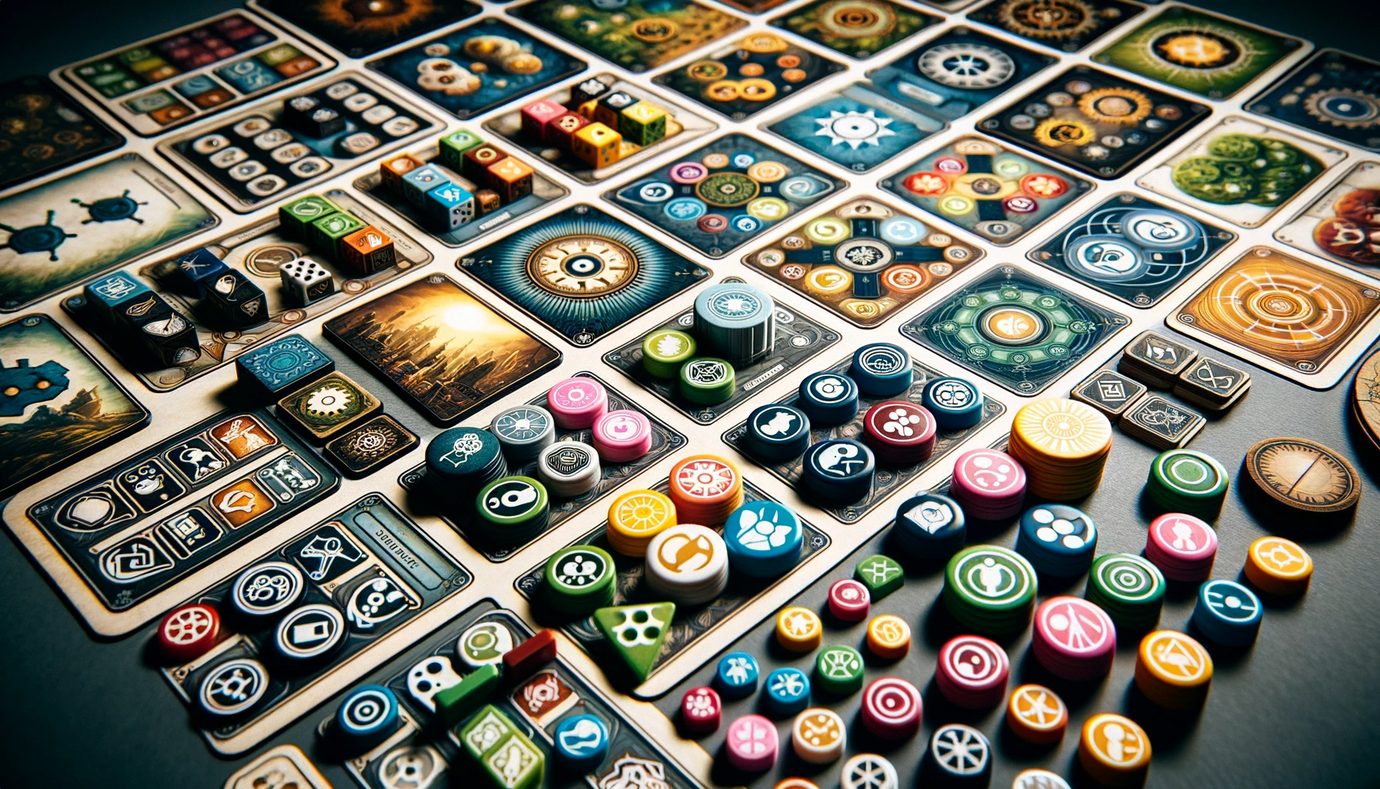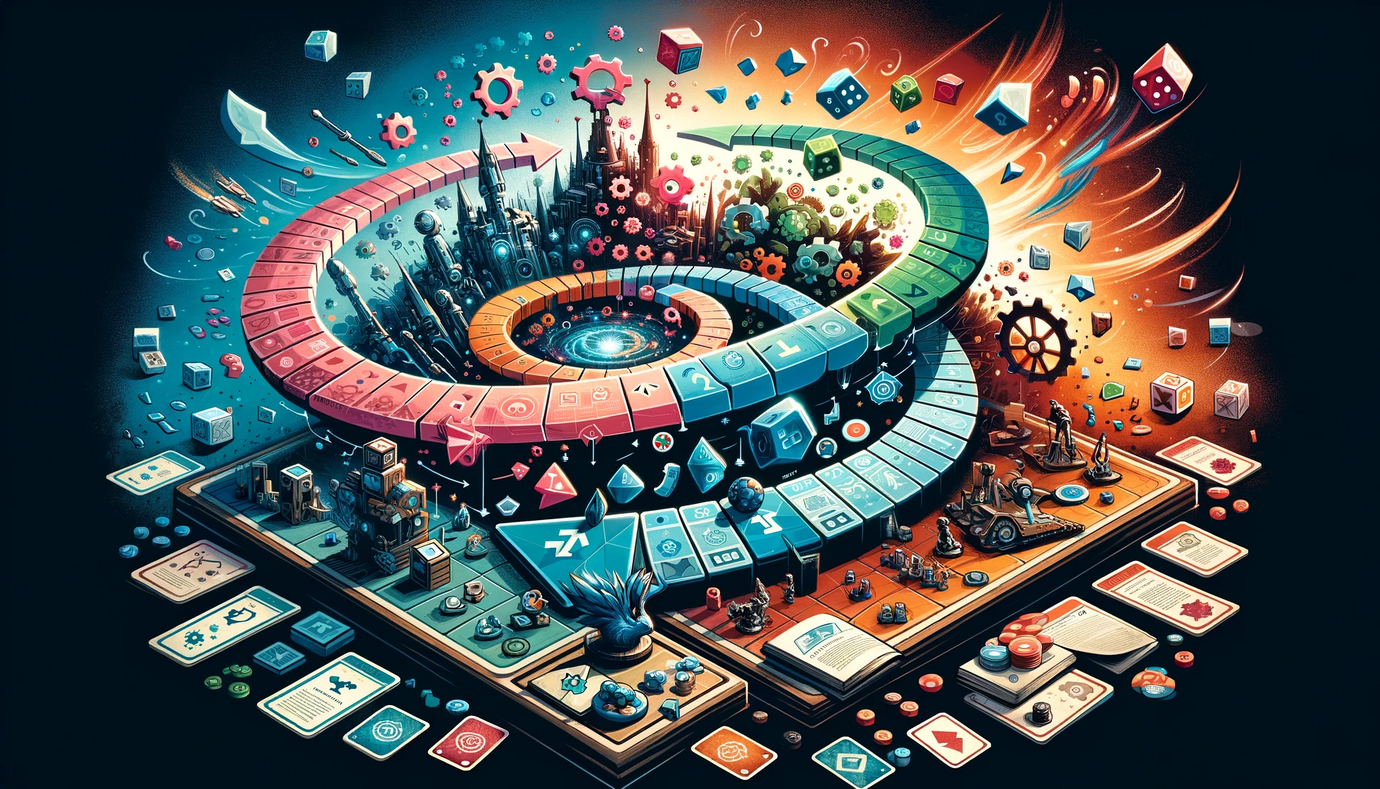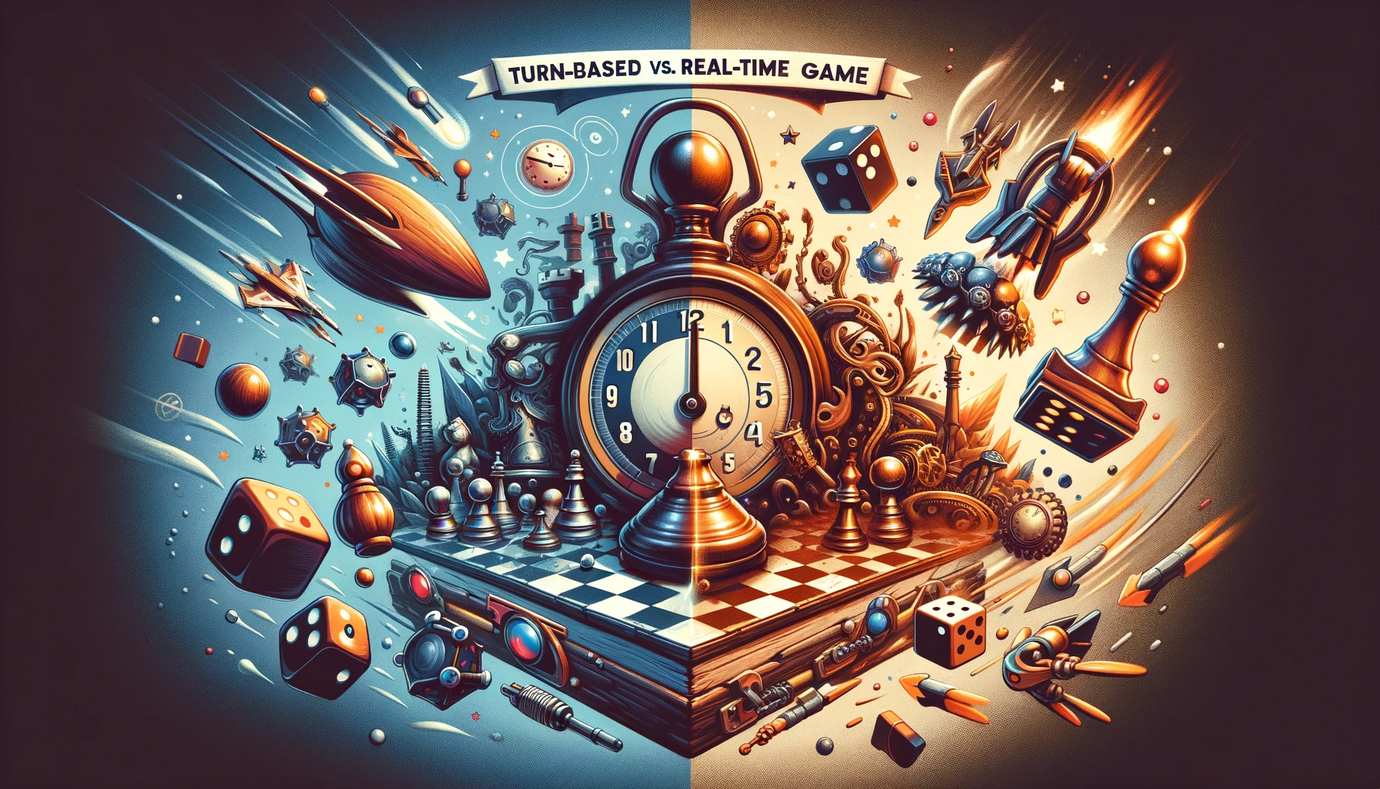Choosing a Game Theme: What Works and Why
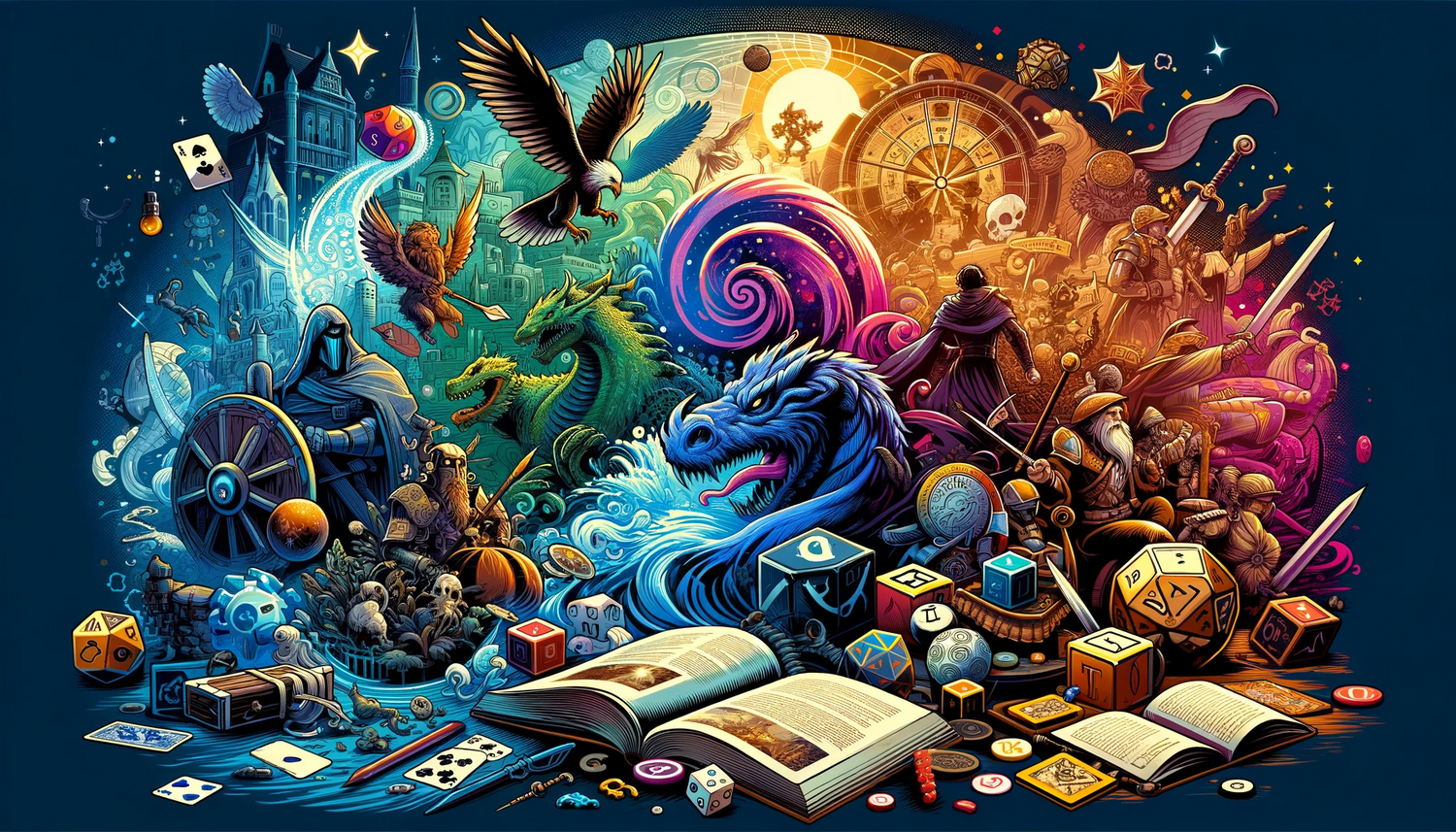
Introduction
Selecting a theme for your board or card game is a critical decision that can significantly impact its appeal and success. A well-chosen theme not only captivates players but also enhances the gameplay experience. This blog post will guide you through the process of choosing an effective game theme, exploring various considerations and providing insights into what works and why.
Understanding the Importance of a Theme
A game's theme is its narrative backdrop – the setting, story, and aesthetics that frame the game's mechanics. It's what makes a game about more than just its rules; it's the storyline or concept that engages players and brings the game to life.
Factors to Consider When Choosing a Theme
- Target Audience: Consider who will be playing your game. Different themes appeal to different age groups and demographics. For example, a fantasy theme might be more appealing to younger players or fans of the genre.
- Market Trends: Research current trends in the gaming industry. Are there themes that are particularly popular or underserved?
- Personal Passion: Your enthusiasm for a theme can be contagious. If you're passionate about a subject, that excitement can translate into the design and presentation of the game.
- Originality: While it’s okay to draw inspiration from existing themes, strive to add a unique twist or perspective to make your game stand out.
Popular Themes and Their Appeal
- Fantasy: Offers escapism and the thrill of exploring new worlds.
- Sci-Fi: Attracts players with its futuristic settings and technological innovations.
- Historical: Allows players to relive or rewrite history, appealing to enthusiasts of specific eras.
- Horror: Creates a tense and immersive atmosphere, perfect for players who enjoy a thrill.
- Adventure/Exploration: Encourages discovery and is often coupled with rich narratives.
- Abstract: Focuses more on mechanics than narrative, appealing to players who prefer strategy over story.
Matching Theme with Mechanics
The best games integrate their theme and mechanics seamlessly. For instance, in a detective-themed game, players might use deduction to solve mysteries, mirroring the theme through gameplay.
- Consistency: Ensure that your game's mechanics make sense within its theme. Avoid mechanics that feel out of place or break the thematic immersion.
- Enhancement: Use the theme to enhance or explain complex mechanics. A well-integrated theme can make complicated rules feel intuitive.
The Role of Research
Research is crucial in theme development, especially for themes based on real-world elements like history or science. Accurate details can greatly enhance the authenticity and appeal of your game.
- Historical Accuracy: If your game is set in a specific historical period, accuracy in details can add depth and richness.
Testing and Feedback
Once you've chosen a theme, test it with your target audience. Feedback is invaluable in understanding whether the theme resonates with players and if it works well with the game's mechanics.
- Playtesting: Conduct playtests to gather feedback on how well the theme is received.
- Iterate Based on Feedback: Be prepared to make adjustments to your theme based on player responses.
Incorporating Artwork and Design
The visual representation of your theme is as important as its concept. Artwork and design elements should reflect and enhance the theme.
- Consistent Art Style: Choose an art style that complements the theme of your game. For instance, a game with a dark fantasy theme might use moody, detailed artwork.
- Component Design: Ensure that game components like cards, tokens, and boards also reflect the theme.
Choosing a game theme is a blend of creativity, strategy, and research. It's about understanding your audience, being aware of market trends, and aligning your theme with your game mechanics. The right theme can elevate your game from a simple set of rules to an immersive experience that players return to time and again. Whether you opt for a journey through space, an adventure in a fantasy world, or a strategic abstract challenge, your theme is the first step in creating a memorable and engaging game.




